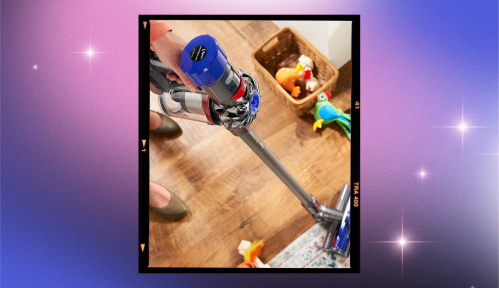At first, your ex was a dream. They came on strong with seduction tactics, showering you with praise and wanting to know everything about you. But then came the manipulation: Maybe they started giving you the silent treatment, blaming you for everything that went wrong in the relationship, or bringing other people into the picture to spark jealousy. And finally, after all this, they discarded you. They waited until they knew how much you loved, wanted, and needed them, and then they cut the cord.
Congrats, you’ve survived a relationship with a narcissist.
Getting out of—and, better yet, getting over—any romantic relationship can be a total nightmare. But it’s a whole different, er, monster when you’re breaking up with a narcissist, a sociopath, or a combination of both. This was no ordinary relationship; therefore, it’s no ordinary path to recovery. “You realize that the relationship felt real to you, but the [other person] faked it the entire time,” says Andrea Schneider, LCSW, author of Soul Vampires: Reclaiming Your Lifeblood After Narcissistic Abuse. “You’ve been in love with a pretend person. That reality is absolutely devastating.”
“You’ve been in love with a pretend person. That reality is absolutely devastating.”
“It’s the same grief as any loss, but on top of that are all the layers of trauma responses: What was real and what was fake?” adds Bree Bonchay, LCSW, author of I Am Free: Healing Stories About Surviving Toxic Relationships With Narcissists And Sociopaths. “That’s why it takes so much longer to heal. There are so many other things you have to process and go through. Coming out of a relationship with a pathological person can change your fundamental sense of safety in this world.”
But it doesn’t have to be the end of the world. As someone whose life fell apart at the masterful hand of a charming sociopath, I can tell you I was able to not only build it back up, but become a happier, healthier, and stronger version of myself than I could have ever imagined. Yeah, your heart and mind might feel like they are broken beyond repair right now. But I promise, it’s worth the fight.
Read on for 4 healing strategies you can use after breaking up with a narcissist or sociopath.

1. Find a support team
Unlike with most breakups, you are bonded to a narcissistic or sociopathic abuser through trauma—that’s what makes moving on so damn hard. And because of this, you’re extra susceptible to anxiety, depression, and even PTSD.
And the science behind trauma explains why your heart and mind feel like they are broken beyond repair: “Trauma is trapped in a different part of the brain that doesn’t use reason, it doesn’t use logic, it doesn’t use language,” Bonchay explains, adding that it takes certain practices to “get that trauma unstuck.” This is why you should start your healing process by finding a reputable and respected therapist, counselor, or life coach who specifically treats relationship trauma inflicted by someone with a personality disorder.
“Trauma is trapped in a different part of the brain that doesn’t use reason, it doesn’t use logic, it doesn’t use language.”
Both Bonchay and Schneider also suggest educating yourself on what, exactly, narcissistic sociopath abuse is. (I’m a personal fan of Jackson Mackenzie’s Psychopath Free and Shahida Arabi’s Becoming the Narcissist’s Nightmare.)
And while you may be tempted to isolate yourself—after all, you wonder if you can trust anyone right now—both therapists emphasize how crucial it is to keep yourself open to the right people. Seek out support groups and friends who can help guide you through this difficult time.

2. Double down on self-care
Self-care is a must for any kind of healing, and you should make it an absolute priority after ending things with an abuser. Schneider recommends “anything that’s good for mind, body, and spirit—and anything that will help to release tension.”
Try to schedule in time each day for some kind of restorative practice, such as exercise, meditation, acupuncture, aromatherapy, breathwork, or journaling. And, of course, getting good sleep and sticking to a healthy diet (whole foods, less processed “junk”—you know the drill) are also key parts of any self-care plan. “Fortifying the basics to stabilize depression is absolutely paramount,” says Schneider.

3. Delete your ex’s number—and block them on social
The key to all of this working is a complete break in contact with your abuser. Stalking their Insta stories will only leave you stuck in a continual pain loop–especially if they’re already loved-up with someone else (AKA their next target).
“When the relationship ends and they look happy with someone else, you are conditioned to think, ‘It must have been me,'” Bonchay says. “But all of these narratives were put in your head. The next relationship isn’t going to fix them. It’s a persistent and pervasive disorder.”
So stand firm in your own no-contact rules—block their social media pages, delete their phone number, whatever it takes. “Make sure your door [to your abuser] isn’t just locked,” Schneider says, “it’s dead bolted.” Of course, if there are children involved or you work with the person, it’s a little more complicated. But in such cases, Bonchay and Schneider suggest limiting your contact to when it’s absolutely necessary.

4. Be patient with the process
Recovering from abuse at the skilled and heartless hands of a narcissistic sociopath isn’t an overnight fix, and you’re bound to have days (and sometimes weeks or months) where you ruminate and fall back into old habits. That’s fine—you’re only human.
“It’s so common to have moments of sentimentality and wistfulness,” Schneider says. “Be glad you have the capacity to love.”
Paula Carrasquillo, a mindfulness coach and author of Escaping the Boy: My Life with a Sociopath, says that you’re not armoring yourself during this process, so much as “building, creating, and nurturing who you are and letting your higher self guide you.”
And while no one wants to experience such a horrible trauma, know that there may be a silver lining: Follow these tips and you’ll likely come out knowing how to create healthy boundaries with others, leaving yourself open to wonderful, authentic relationships. (Including the one you have with yourself.)
Not sure if your relationship is healthy? You could start by looking at your text message history—or just let your intuition show you the answer.
Sign Up for Our Daily Newsletter
Get all the latest in wellness, trends, food, fitness, beauty, and more delivered right to your inbox.
Got it, you've been added to our email list.











